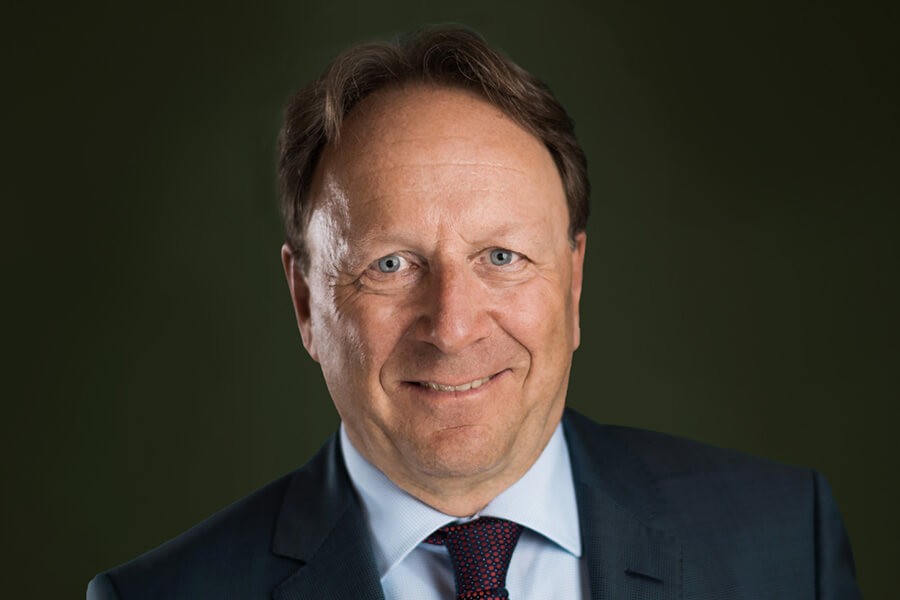Everyone wants to invest sustainably, but doesn’t know how. Martin Enz advises foundations that invest according to ESG or SRI criteria and develops individual investment strategies and guidelines with them.
Mr. Enz, what are the biggest challenges for foundations that want to invest sustainably?
The challenges start with the definition of values and thus with the investment strategy. If the corset is too tightly stiffened, this limits the choice of securities and opportunities for returns. Foundations can invest sustainably in three stages. Negative screening excludes undesirable industries, companies with controversial business practices or certain production methods, for example pharmaceutical companies that rely on animal testing. Positive screening includes companies that are committed to the UN’s 17 Sustainable Development Goals. Impact focuses on companies that make a measurable difference, for example with renewable energy. We screen all companies and investment funds using the ESG databases of ISS, MSCI and Screen17. Foundations with sound policies exclude about half of all companies with negative screening, while other very rigorous approaches exclude up to 90 percent. This sometimes leaves barely enough investments to sufficiently diversify the foundation’s assets.
Where do you see the greatest added value of independent consultants for foundations?
A provider- and product-independent advisor separates the wheat from the chaff. There are more than 50,000 investment funds that we can analyze with ESG databases. Anyone who does not deal with this on a daily basis is lost. Recently, I was looking for a real estate fund for a foundation with a positive screening. To do this, I reviewed all the funds under consideration with ESG databases and fund documentation and spoke with the providers. Of course, all the fund managers had an integrated ESG approach. When I followed up and wanted to know what the processes and criteria looked like in concrete terms, some of the statements were very vague.
Recently, more and more investment products have been carrying a sustainability label. How do you keep track of them?
Labels sometimes say little. Ratings are more important, and even more important is the examination according to relevant individual criteria, of which there are more than 8000. We don’t select investments by label, but by the ratings, and we analyze the database according to the criteria that are relevant to the client, which can be very different. In the last strategy I helped develop, we divided the funds into three classes. First, liquid funds that meet 20 criteria and are among the top 10 percent of funds according to ISS and MSCI. Then closed-end funds that are not traded, with in-depth analysis and reports that also evaluate positive contributions to goals. Before recommending them, we do due diligence: interviewing managers, studying relevant reports, and reviewing track records.
Lastly, Restricted Investment Universe Funds, which by definition do not violate negative criteria, for example, real estate.
Should foundations be able to invest and manage their assets sustainably themselves?
Yes, if the know-how and resources are available. Most foundation boards are involved on a voluntary basis, and many lack the necessary investment knowledge, sustainability know-how and, above all, time. In this case, a foundation should consider how it can efficiently achieve its financial goals and fulfill its foundation purpose. It can delegate the work, but not the responsibility. It is also advisable to rethink the organizational structure for investments in general to improve efficiency and professionalism. This includes an investment committee that relieves the foundation board and is supported by an independent advisor.
Is it costly to develop, implement and monitor sustainable investment strategies?
Not necessarily. It depends on the size of the foundation and expertise of the consultant. If a consultant serves other foundations, he does not have to reinvent the wheel and can use the same tools. The definition of values and investment strategy are the most important. We have largely optimized our processes and therefore have more time for consulting. We also share our knowledge with the foundation board and, if desired, train the employees.
How do you ensure that foundation assets are invested in an ESG or SRI compliant manner?
On the one hand, we question the values. For example, if a board of trustees wants to exclude companies that violate human rights, we ask what they mean by human rights violations. Secondly, we review the entire portfolio every three months and look for deviations from the values. If, for example, a car manufacturer like Volkswagen loses massive credibility because of the diesel scandal, we adjust the portfolio immediately. Greenwashing can be a problem with investment funds because some are not transparent. That’s why interviews and careful due diligence are so important.

